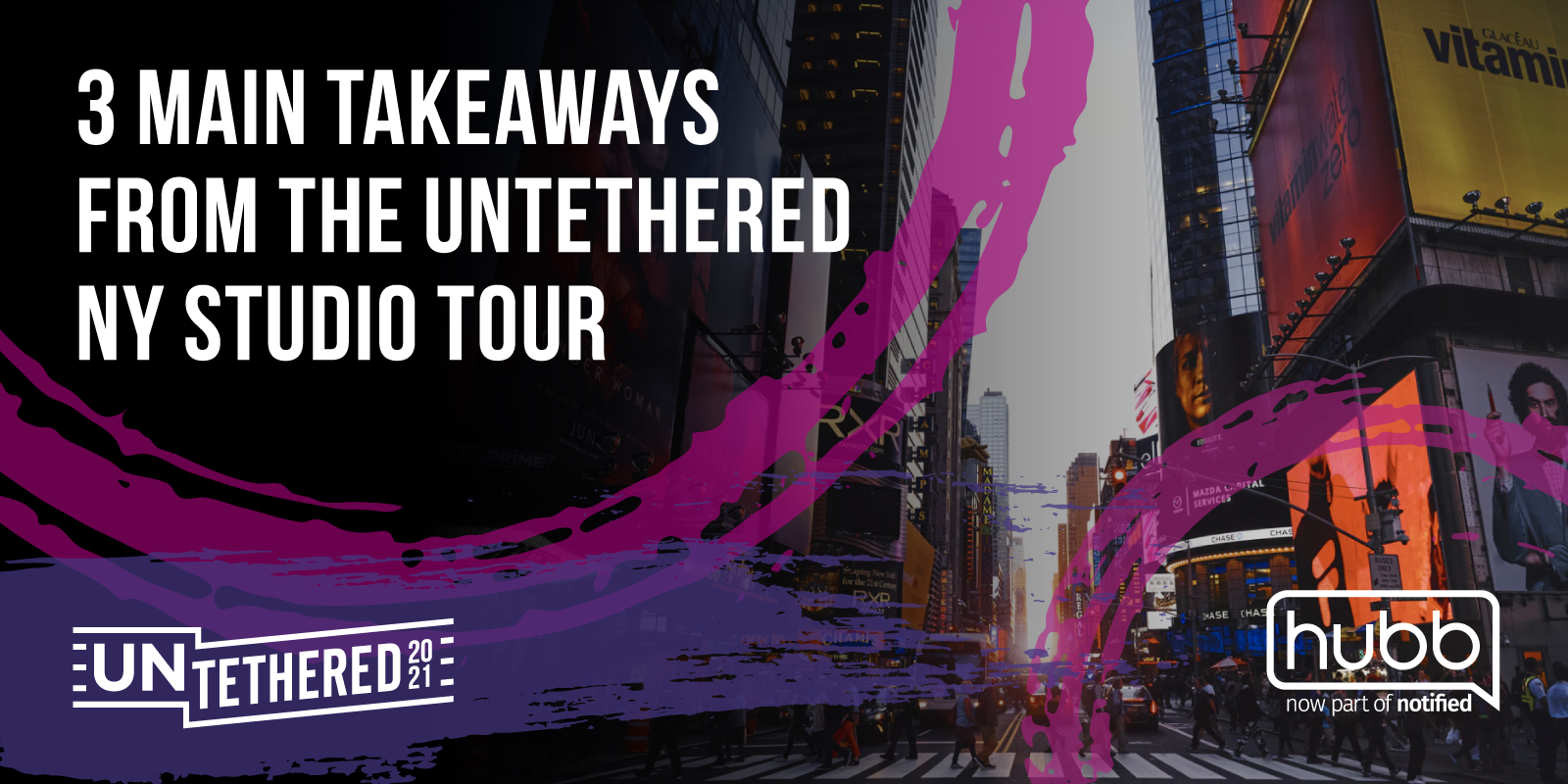Connect. Experiment. Lead through change.
I could explain that the UNTETHERED Studio Tours are one-day digital events that bring events professionals together to educate, inspire, and then let us all loose to experiment and co-create together. They are that, but more accurately, more genuinely, they’re the product of the blood, sweat, and tears of a group of dedicated industry volunteers. Over a year ago we were watching the industry we all love crumble—with no clear path forward. What would events be, without gathering spaces and groups able to safely gather in them?
Eventually, we focused: Despite being some of the hardest hit, event professionals are exactly the kind of people who could innovate our way out of and beyond any restrictions. We all just needed to get together.
When Allie, Josh and others connected on what we were thinking—using this pivot to test a new event format, which would begin with us event profs having events for us—we were totally aligned. We gathered together the “girl gang” to put together the original UNTETHERED in less than six weeks. Allie later encapsulated UNTETHERED with such crystal clarity: “Even if one person leaves feeling like they can do their job better or feeling more excited about the future…than we’ve been successful. UNTETHERED is not an event—it’s all about us empowering each other. And that’s incredibly meaningful to be a part of.”
Another pivot happened again, as the delta variant was surging and hospital beds were at capacity, we made the decision to cancel the in-person element of the UNTETHERED Fall hybrid event. This led us to completely re-imagine our event (in less than a month!)—and thus the UNTETHERED Studio Tours were born.
My dear event profs, we’re right there with you. That’s why our NY Studio Tour was so meaningful for me. It was all about digital empathy and empathetic design. In other words, it was all about why we started UNTETHERED: empathy—for our event attendees and ourselves—has always been at the heart of our work, and if it could get even more important, it has now, in the midst of a pandemic.
The importance of empathy
Don’t believe me? We’re now lucky enough to have data-driven research into the benefits of empathic leadership. Empathy seems to correlate with innovation—if you have caught the empathetic bug, you’re also more likely to suffer (quite pleasantly) from innovation. I see this in my work life. The more I connect to my colleagues, the more I benefit from their unique perspectives and understand their skills and approaches so that we can do more together, better. Empathy’s benefits flow the other way too—staff feel like they can navigate work more successfully if their leaders are empathetic. They are more engaged with an empathetic organization too, probably not only because they feel safe and comfortable but because they know their ideas will have a place.
And think about how that translates to our event attendees. I love what Ajith Krishnankutty, Head of Experiential Marketing for The Capital Group Companies Inc., said: Our “product” as event profs is not a thing; it’s how we make our attendees (and sponsors) feel. “We design our events for memorability,” he told me in preparation for this last Untethered. In fact, he said, CG has revised considering their role as one of “event planners” to one of “experiential marketers.”
From me to we to us
If events are about the feeling an attendee walks away with, how come so many spend their time on their phone? Do you really think your event was a success if, during all those star-studded presentations you set up, in the midst of that mixer you paid for, while your tech staff was working hard to make sure attendees could engage from afar, those attendees stayed face down in their personal glowing screens or even walked away to do laundry, just letting the tech run to their empty living room?
I wouldn’t count an event like that as a success. David Adler, Founder of BizBash, helped me crystallize what’s going on in a lot of our ho-hum events. There’s no empathy. We haven’t budgeted formally getting people to connect into the schedule. To a large degree, empathy is learned. Our attendees need someone with the power to control the conversation, deliberately guiding it from me to we to us. A skilled “collaboration artist,” Adler calls this person, creates an atmosphere where diverse attendees see their commonalities and want to, therefore, work together. If your attendees don’t feel connected to each other, then they probably won’t feel connected to your event.
Preparing for an empathetic event
Like I said, empathy doesn’t just happen—we all have to work toward it, whether we’re meeting in a ballroom or online. Naomi Clare, Founder and CEO of Storycraft Lab, used an interactive session to explore empathetically designing an event. What if we think—during the planning stage of an event—about where each unique attendee is coming from when they join our event, who in their circles influence them, and how all of that will make them think and feel about and react to our event? Considering all of this would lead to an empathetic event revolution! It may solve the problem of how to get someone to turn up to an event they’ve registered for. Or, yes, how to help them maximize connections made at the event. Want to learn more about empathetic audience design? Download the latest chapter of the UNTETHERED Big Ideas Book or watch Naomi in action as she leads a webinar on that very topic.
Want to know more about each of those sessions—and maybe the others from UNTETHERED NYC? I get that. Every session was recorded, so when it’s most convenient for you, check them out. And then don’t miss the next UNTETHERED @IMEX—registration is now open.


